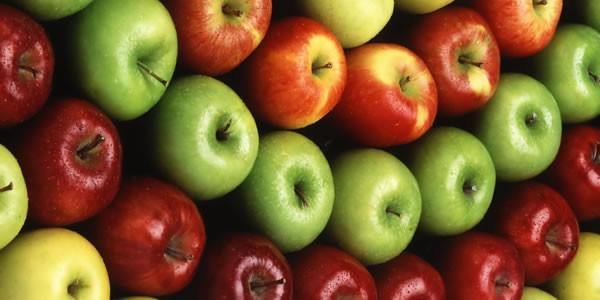An apple

The botanical name of this fruit is Malus domestica. The apple is the most preferred and consumed fruit in the largest quantities in the world.
They are easy to store and extremely useful, even from the results of recent studies it was found that their regular consumption can prolong life.
The homeland of the apple tree is Mesopotamia, not America, as was previously believed.
Apple – useful properties
These fruits are one of the best sources of vitamin C.
From their consumption, we can also get vitamin A, which is a strong antioxidant and helps the first formation of immune cells, and in addition, this vitamin binds to free radicals that cause inflammatory processes, removing them from the body through the digestive tract and the excretory system.
Apples are also a very good source of vegetable fiber, which prevents the absorption of LDL /bad/ cholesterol.
These fruits also contain some of the B vitamins such as riboflavin /B2/, thiamin /B1/ and pyridoxine /vitamin B6/, which in synergy form an enzyme that supports metabolism and other vital functions in the body.
p>
Other minerals that apples are a source of are iron, copper, zinc, phosphorus, calcium and potassium, which are very important for maintaining a normal heart rate and blood pressure.
All these beneficial properties are sufficient grounds for the apple to be defined as a superfood.
In one cup, 125 grams of sliced apples with the skin contain 65 calories, carbohydrates are 17 grams, sugars 13 grams, vegetable fiber 3 grams, which is about 10% of the daily required dose and sodium 1 gram.
Research conducted on apples shows that the flavonoids and nitrates they contain can protect us from cardiovascular disease by lowering blood pressure and improving endothelial function, which regulates blood flow.
Flavonoids are one of the most important phytochemicals found naturally in fruits, vegetables and edible plants.
One apple is a source of 5 to 50 mg. chlorogenic acid, which helps to remove oxalic acid from the body and thus improves liver function.
Apple phytoncides are active against the causative agents of dysentery, against Staphylococcus aureus, Proteus, influenza virus A.
The antibacterial activity of phytoncides increases from the periphery of the fruit to its center. It is recommended to consume apples in the period after a heart attack.
Studies have also found a link between regular apple consumption and a reduced risk of certain types of cancer, particularly colorectal cancer.
According to the scientists who conducted these studies, this effect is due to the high content of flavonoids in these fruits, which have strong antioxidant activity.
Apples have been found to contain more antioxidants than any other food, with the skin of the fruit having a much higher nutritional value than the core.
Also interesting is the scientific finding that there is no other fruit that has been confirmed to change the likelihood of developing colon cancer, and the more consumed, the better.
But it should be remembered that apples contain fructose, which can be harmful to health if consumed in excessive quantities.
However, several studies have shown that regular consumption of these fruits significantly lowers the risk of developing type 2 diabetes.



